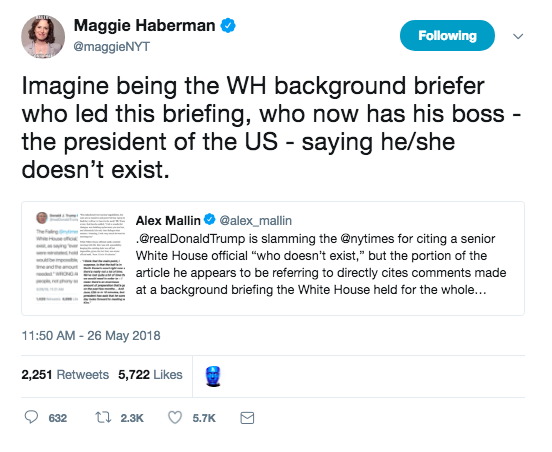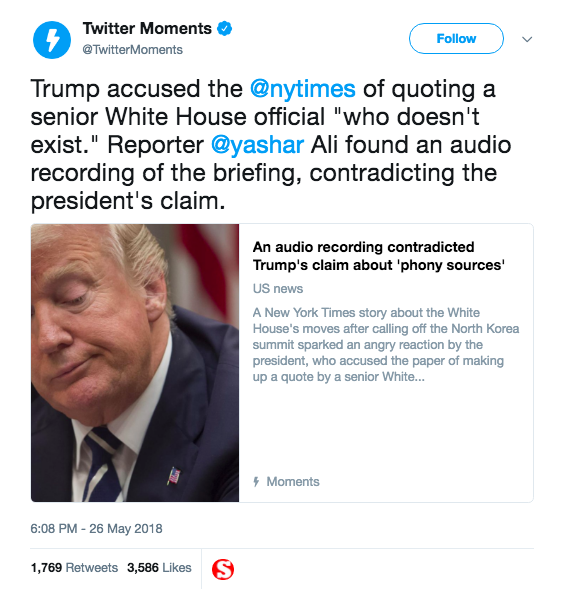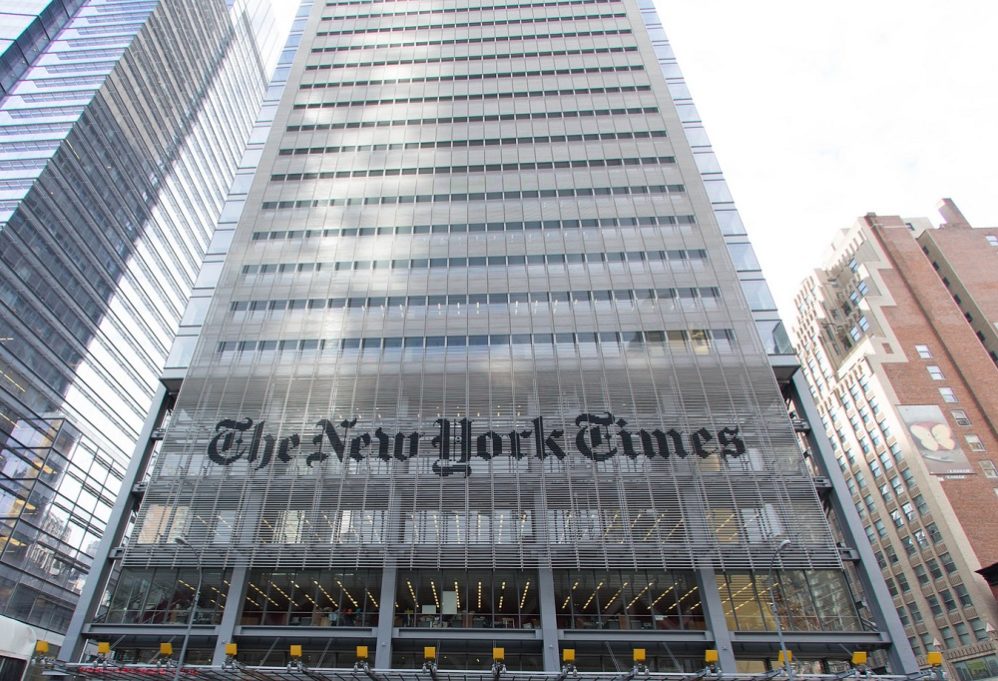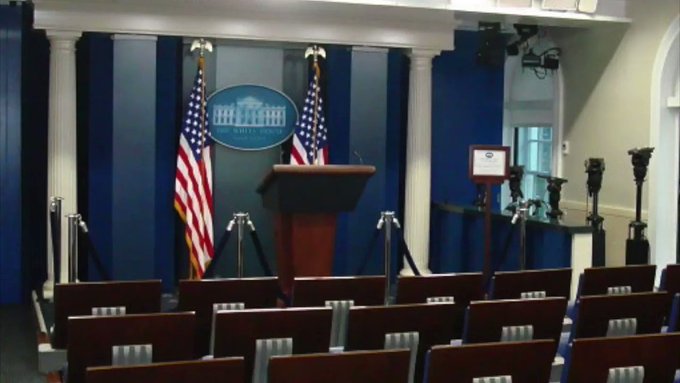Media Double Down After New York Times Gets Busted Peddling Fake News
There may have been a real White House briefing with real White House officials, but The New York Times couldn't be trusted to accurately summarize what the White House official said. And it wasn't on a minor point.
On the path to the June 12 summit with North Korea, journalists claimed President Donald Trump would not be willing to walk away from the negotiating table because he was too desperate for a win.
The Washington Post’s David Nakamura wrote that “critics fear that a president determined to declare victory where his predecessors failed will allow his desire for a legacy-making deal to override the substance of the negotiations.” On the same day, the Washington Post’s Paul Waldman mocked Trump’s desire for a win, which he said was turning Trump into a fool who was getting played.
Then President Trump did what media outlets said he’d never do. He walked away from the negotiating table due to North Korea’s behavior. The media outlets didn’t acknowledge their previous analytical missteps so much as come up with new lines of attack on Trump.
Mark Landler and David Sanger of The New York Times wrote an article arguing there were deep divisions between Trump and his advisors. To support the claim, the Times argued that Trump said a June 12 summit was still possible, while his top aides said it was “impossible”:
As with so many issues involving this president, the views of his aides often have little effect on what he actually says. On Thursday, for example, a senior White House official told reporters that even if the meeting were reinstated, holding it on June 12 would be impossible, given the lack of time and the amount of planning needed.On Friday, Mr. Trump said, ‘It could even be the 12th.’
President Trump responded by calling it fake news, tweeting:

Trump was incorrect when he said that The New York Times “quotes” the official. They actually characterized his remarks. But they definitely claimed a senior White House official said June 12 was impossible.
Media types rushed to The New York Times’defense, claiming they heard a White House official say the “impossible” line in a background briefing they were privy to. Someone leaked audio of a background briefing that they said supported The New York Times’ “impossible” characterization.
Yashar Ali, who writes for New York magazine and HuffPo, then outed the name of someone who briefed reporters on background and provided audio that he erroneously claimed supported The New York Times’ characterization:
4. I've obtained audio of the WH press briefing. You can hear Raj Shah, Deputy Press Secretary, introduce Pottinger (along with the terms - which are standard) and then Pottinger makes the statement that POTUS says was never made. Lots of reporters in briefing room and on phone.
The audio says:
REPORTER: Can you clarify that…the President obviously announced in the letter and at the top of the bill signing that the summit is called off. But then, later, he said it’s possible the existing summit could take place, or a summit at a later date. Is he saying that it’s possible that June 12th could still happen?WHITE HOUSE OFFICIAL: That’s…REPORTER: Or has that ship sailed, right?WHITE HOUSE OFFICIAL: I think that the main point, I suppose, is that the ball is in North Korea’s court right now. And there’s really not a lot of time. We’ve lost quite a bit of time that we would need in order to, I mean, there’s been an enormous amount of preparation that’s gone on over the past few months at the White House, at State, and with other agencies and so forth. But there’s a certain amount of actual dialogue that needs to take place at the working level with your counterparts to ensure that the agenda is clear in the minds of those two leaders when they sit down to actually meet and talk and negotiate, and hopefully make a deal. And June 12 is in 10 minutes, and it’s going to be, you know. But the President has said that he has — someday, that he looks forward to meeting with Kim.
You will note that at no time does the White House official say a June 12 meeting is “impossible,” and at no point does he agree that the “ship sailed” or that time has run out. He definitely says it would be difficult to prepare for the summit given the lack of time to do so. His main point, as he says, is that the ball is in North Korea’s court and they need to act quickly.
As Eric Blair tweeted:
It's not a question of semantics. Take it from someone with an M.A. in English: "very or exceedingly difficult" /= "impossible". People climb Mt. Everest, don't you know? No one says it's "impossible".
Clearly The New York Times peddled fake news. There may have been a real White House briefing with real White House officials, but The New York Times couldn’t be trusted to accurately summarize what the White House official said. And it wasn’t on a minor point.
Recall that the whole point of their characterization was to say this official was at odds with Trump and that Trump wasn’t listening to his advisors. The fact that Trump and his advisors were not disagreeing with each other undermines the entire point of The New York Times story.
But rather than admit that The New York Times was incorrect, and their reporters aren’t good at listening to Trump advisors or accurately conveying their remarks, the media claimed that Trump was the one lying, since, well, White House advisors who give briefings exist. See, Trump said no source existed who said the June 12 date was impossible — but a source exists who did not say that. Ergo: Trump lied.
I’m sure you see the logical failures here, even if President Trump could have or should have said that The New York Times attributed fake news to a real source.
The media, having been outed with benefit of audio tape at being failures at accurately conveying news, quickly moved the goalpost to argue that White House officials exist, as if that was in question. There are countless examples, but The New York Times’Maggie Haberman is a perfect one:

No source exists who said what the Times claimed he said, so I imagine the background briefer probably feels a lot of anger at The New York Times for being utterly incompetent at its job. He probably is angry that The New York Times claimed he said something he didn’t say. Twitter editorialized as well:

Again, if you for some reason thought that Trump was saying White House officials who give background briefings don’t exist, then this would be a great point. If you expect The New York Times not to invent things that weren’t said and attribute them to these sources, then this is a not good point.
Trump is notoriously imprecise. His sentences — tweeted or spoken — are word salads that can be difficult to diagram. His word choices, run-on sentences, and inconsistent capitalization can be frustrating. It is reasonable to critique the president for his communication style, including that he should have condemned The New York Times for fake news attributed to a real source instead of fake news attributed to a fake source.
A media that desires to hold this president accountable simply must be accurate in its newswriting. It failed dramatically here, and failed to hold itself accountable when caught. This is why the media’s credibility is in tatters and why President Trump and others find it so easy to hold them up for ridicule.
Mollie Ziegler Hemingway is a senior editor at The Federalist.




No comments:
Post a Comment
Thanks for commenting. Your comments are needed for helping to improve the discussion.